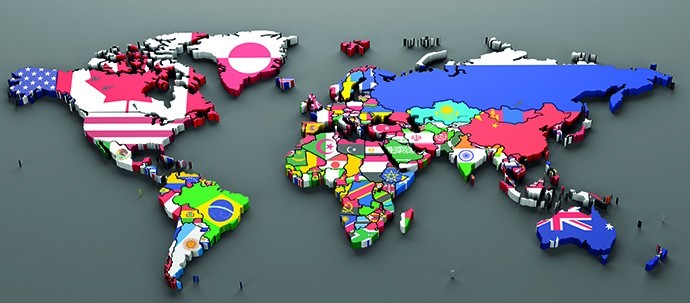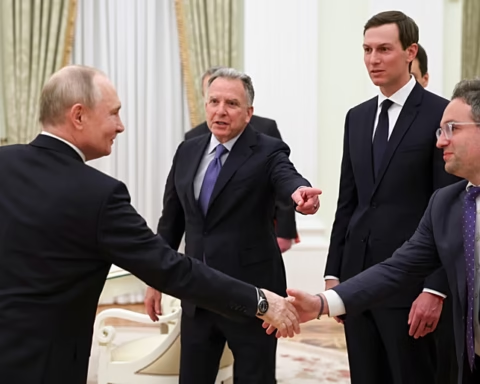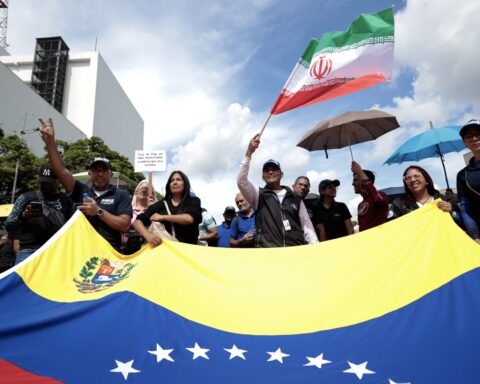In times of war and transition, necessity overwhelms virtue. And was ever thus.
After years of tension with Beijing following the deadly border clash in 2020, New Delhi has recently reopened high-level engagement, with flights resuming and India’s Prime Minister Narendra Modi preparing to travel to China to meet President Xi Jinping.
At the same time, India remains firmly anchored in security cooperation with Washington, most recently testing its Agni-V missile, capable of reaching Chinese targets. The dual track may seem contradictory, but it reflects what External Affairs Minister Subrahmanyam Jaishankar has often described as a foreign policy of “multi-alignment”, working with competing powers simultaneously to maximise national advantage.
Critics see opportunism. India sees necessity. US trade threats and pressure over Russian oil have pushed New Delhi to broaden its options rather than narrow them.
In Machiavelli’s terms, India is adapting to “the times”, focusing less on ideals and more on “effectual truth”, what works to preserve national strength.
The Philippines offers a parallel case.
President Ferdinand Marcos Jr. has anchored Manila’s defence posture to the United States, Japan, and Australia, even holding joint naval drills with India. Yet Marcos actively courts Chinese investment and stresses openness to dialogue with Beijing. Manila is, in Machiavelli’s words, both “fox” and “lion” – relying on Washington’s deterrence while keeping Beijing close enough to avoid outright enmity.
This is not hypocrisy. It is hedging, a textbook strategy for smaller states living under the shadow of rival powers.
The Association of Southeast Asian Nations as a whole embodies this logic, seeking unity while avoiding binding commitments that might close off future options. The Gulf states show the same pragmatism. Saudi Arabia and the United Arab Emirates are deepening long-term energy deals with China, ensuring secure demand for their oil. At the same time, both remain critical military partners of the United States and, in the UAE’s case, maintain growing trade with Russia despite Western sanctions.
Here too, appearances matter. Machiavelli’s observation that “everyone sees what you appear to be, few experience what you really are” captures the balancing act of Gulf leaders. They are cultivating an image of reliability to all sides while pursuing their own security and economic interests.
Even Europe, often portrayed as the bastion of values-based foreign policy, has been forced into politics of convenience. While loudly reducing dependence on Russian pipelines after the Ukraine invasion, Europe’s imports of Russian liquefied natural gas have quietly risen. Energy security eclipses consistency. The uncomfortable reality is that in times of war and transition, necessity overwhelms virtue.
Taken together, these examples reveal a broader shift. The age of exclusive alliances and rigid blocs is giving way to an age of flexible alignments. Middle powers, especially, are learning to hedge, balance and manoeuvre, rather than bind themselves too tightly to one camp. What looks inconsistent is, in fact, coolly rational.
Machiavelli’s lessons resonate strongly here. He separated politics from ethics, reminding rulers that survival often requires acting against conventional morality while appearing virtuous. He warned that “it is much safer to be feared than loved” in a world where human beings are “ungrateful, fickle, liars and deceivers”. States today, like princes in Renaissance Italy, are operating under the same logic: secure survival first, manage appearances second. The politics of convenience may not inspire lofty rhetoric, but it reflects the reality of an uncertain world. For middle powers caught between Washington and Beijing, Moscow and Brussels, survival depends on flexibility, not loyalty.
The question is what this trend means for global order. Does the rise of convenience-driven statecraft stabilise competition, giving middle powers more room to manoeuvre? Or does it accelerate fragmentation, by weakening trust and solidarity among allies?
In truth, Machiavellian politics never disappeared. States have always hedged, balanced, and pursued advantage where they could. What is different today is not the existence of this behaviour, but the degree to which strategic rivalry, economic disruption, and technological shifts have brought it into sharper focus. The logic of flexibility and opportunism has always been part of international politics. The current moment simply makes it more visible and more decisive.
Either way, the lesson is clear. In 2025, the most relevant strategist may still be Machiavelli, not because leaders are cynical, but because they are adapting to the world as it is, not as they wish it to be.
* Shameek Godara is an advisor at the Norwegian Embassy in Australia, specialising in international relations, trade, culture, and policy.
Source: https://www.lowyinstitute.org/the-interpreter/age-alliances-ending-hedging-rule-order






